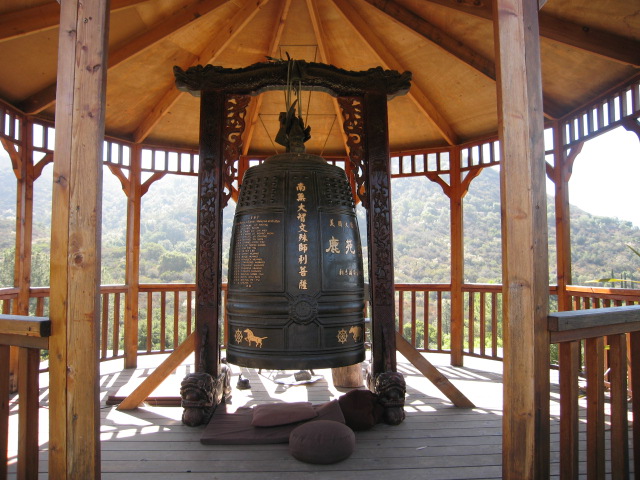Buddhism is often listed as the fourth largest religion in the world. It is exceeded in numbers only by Christianity, Islam and Hinduism.
Estimates of the precise number of Buddhists in the world vary between 350 and 1,500 million, making Buddhism the second, third or fourth largest world religion.
The exact number of adherents is impossible to specify for a number of reasons:
"... they did not have congregational memberships and often did not participate in public ceremonies."
In totalitarian countries without religious freedom, reliable data is impossible to collect. For example, in 1995, only 5% of Chinese adults were willing to admit to pollsters that they belong to a religion. As a result, Wikipedia quotes Buddhist numbers in China alone as ranging from 106 million to 1.06 billion.
Many persons, particularly in Asia, follow a syncretistic religion which is a blend of various world religions. A combination of Buddhism, Confucianism, and Taoism is one common example. There is no obvious way to compute a meaningful number of Buddhists under such circumstances.
Buddhism was founded in Northern India by Siddhartha Gautama in the sixth century BCE. However, Buddhists believe that there were countless Buddhas -- humans who have achieved enlightenment -- before him and that there will be many more after him. When Siddhartha Gautama attained enlightenment, he assumed the title Lord Buddha (one who has awakened)
Buddhism shares with Hinduism belief in karma, dharma, and reincarnation:
Karma is the sum total of an individual's actions of body, speech and mind -- good, bad and neutral -- taken in their current and previous lives.
Dharma, in Buddhism, refers to two items:
The teachings of the Buddha; a person's path to enlightenment, and
The fundamental principles that order the universe
Reincarnation is the rebirth of a living being after death into a new body that is either a human, animal or a supernatural being.
In contrast to Christianity, classical Buddhism does not involve the recognition or worship of deities. It also does not teach the existence of the human soul.
Buddhism later almost completely died out in India. However, by that time, it had become established in Sri Lanka. From there, it expanded across Asia, evolving into two or three main forms:
Theravada Buddhism (sometimes called Southern Buddhism; occasionally spelled Therevada) "has been the dominant school of Buddhism in most of Southeast Asia since the thirteenth century, with the establishment of the monarchies in Thailand, Burma, Cambodia and Laos."
Mahayana Buddhism (sometimes called Northern Buddhism) is largely found in China, Japan, Korea, Tibet and Mongolia.
Vajrayāna Buddhism (a.k.a. Tantric Buddhism, Mantrayana, Tantrayana, Esoteric Buddhism, or True Words Sect). Some consider this to be a part of Mahayana Buddhism; others view it as a third Buddhist path.
To these might be added:
Tibetan Buddhism. This developed largely in isolation from Theravada and Mahayana Buddhism because of the remoteness of Tibet.
Zen Buddhism. This developed from within the Chinese Mahayana school known as Chan. Zen Buddhism is becoming increasingly popular in the West.
Since the late 19th century:
Modern Buddhism has emerged as a truly international movement. It started as an attempt to produce a single form of Buddhism, without local accretions, that all Buddhists could embrace.

Quotations involving Buddhism:

"Buddhism has the characteristics of what would be expected in a cosmic religion for the future: it transcends a personal God, avoids dogmas and theology; it covers both the natural & spiritual, and it is based on a religious sense aspiring from the experience of all things, natural and spiritual, as a meaningful unity" A widely cited, but apparently spurious quotation attributed to Albert Einstein. 1
"The greatest achievement is selflessness.
The greatest worth is self-mastery.
The greatest quality is seeking to serve others.
The greatest precept is continual awareness.
The greatest medicine is the emptiness of everything.
The greatest action is not conforming with the worlds ways.
The greatest magic is transmuting the passions.
The greatest generosity is non-attachment.
The greatest goodness is a peaceful mind.
The greatest patience is humility.
The greatest effort is not concerned with results.
The greatest meditation is a mind that lets go.
The greatest wisdom is seeing through appearances." Atisha.
"If you live the sacred and despise the ordinary, you are still bobbing in the ocean of delusion." Zen Master Lin-Chi.
"Aware of the suffering caused by the destruction of life, I vow to cultivate compassion and learn ways to protect lives of people, animals, plants, and minerals. I am determined not to kill, not to let others kill, and not to condone any killing in the world, in my thinking, and in my way of life." The First Precept of Mindfulness Training, Thich Nhat Hanh. 4
"When the mind begins to become still, we then begin to truly see it.
When you first try to stabilize and pacify the mind, initially it will become very busy because it's not accustomed to being still.
In fact, it doesn't even necessarily want to become still, but it is essential to get a hold of the mind to recognize its nature.
This practice is extremely important. ... Eventually you will find yourself in a state where your mind is clear and open all the time.
It is just like when the clouds are removed from the sky and the sun can clearly be seen, shining all the time. This is coming close to the state of liberation, liberation from all traces of suffering. ... The truth of this practice is universal. It isn't necessary to call it a religion to practice it.
Whether one is a Hindu or a Moslem or a Christian or a Buddhist simply doesn't matter.
Anyone can practice this because this is the nature of the mind, the nature of everyone's mind.
If you can get a handle on your mind, and pacify it in this way, you will definitely experience these results, and you will see them in your daily life situation.
There is no need to put this into any kind of category, any kind of "ism."
- Venerable Gyatrul Rinpoche.
References:
This quotation is often cited as appearing in Helen Dukas & Banesh Hoffman, Eds., "Albert Einstein: The Human Side," Princeton University Press, (1954). It looks like something he could have written or said. It resembles the type of language found in other religious and spiritual material that Einstein wrote. But there appears to be no evidence that the words are actually his. A search on Google for a phrase from this quotation found that it is seen at about 316 locations on the Internet. However, as explained in
http://en.wikiquote.org/, item 14, he probably never wrote it. Still, someone wrote it. Also it contains many interesting insights. So, we included it.
"Quotes by Atisha," Gaia Community, at:
http://www.gaia.com/
"Portal: Buddhism/Selected quote," Wikipedia, at:
http://en.wikipedia.org/
Rev. Hozan Alan Senauke, "Cultivating Peace, Dismantling War: Inner and Outer Disarmament," The Buddhist Channel, at:
http://www.buddhistchannel.tv/
Venerable Gyatrul Rinpochem "Introduction to Buddhism," at:
http://www.mirrorofwisdomvideo.org/
"Why I believe Buddhism and Buddhist belief are false," Peace-of-mind.net, at:
http://peace-of-mind.net/
"Major Religions of the World Ranked by Number of Adherents," Adherents.com at:
http://www.adherents.com/
"Buddhism by country," Wikipedia, as at: 2009-DEC-13, at:
http://en.wikipedia.org/wiki/Buddhism_by_country





